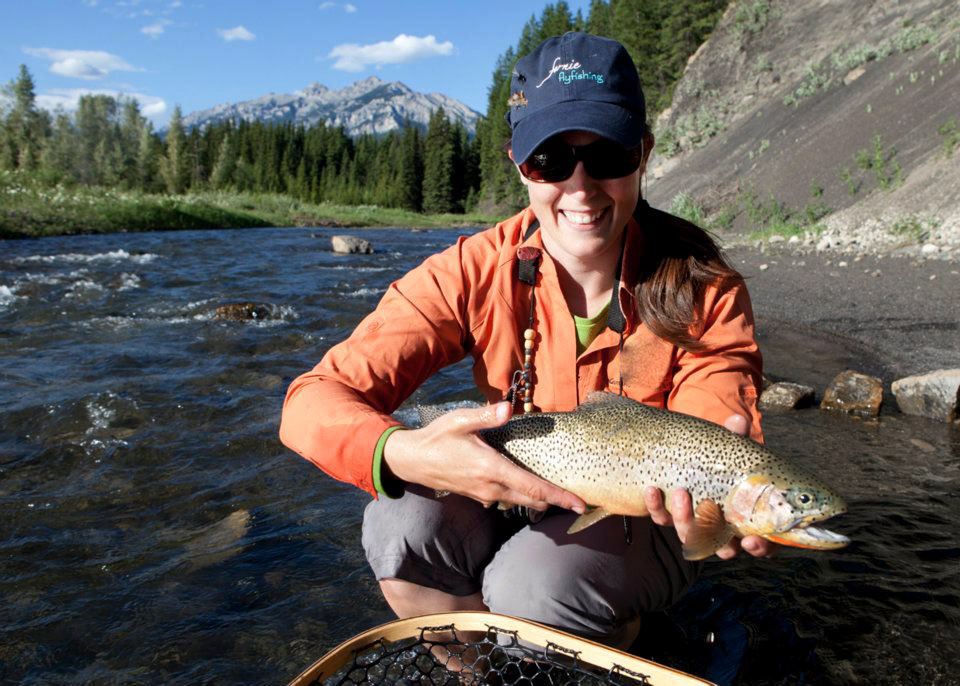Beckie Clarke owns Fernie Fly Fishing and has been a fixture in the local fly fishing community in British Columbia for over a decade. She joined the Winston Pro Advisory team as a freshwater specialist in 2013. A formidable angler and dedicated conservationist, she shares the story of Fernie Fly Fishing and the special challenges of targeting bull trout.
You’ve quickly established yourself as one of the top female anglers in a sport and industry that has been typically dominated by men. How did you first get involved in the sport?
I was fortunate enough to grow up in British Columbia where adventure and the outdoors seem to be engrained within the lifestyle of most families. It engulfed ours that’s for sure and from a young age fishing was always part of that equation. My grandfather was the fly fisherman of the family and I adored him. I would like to think I inherited all his skill ;-). The first time I dedicated any attention to learning to cast a fly rod was with his old gear. I was inspired at a young age with a keen sense of adventure so a life and career in the outdoors seemed inevitable. My original quest as a kid of becoming a mountain guide evolved into a fly fishing guide; that’s where it all seemed to fit.
What were some of the biggest obstacles that you faced?
The challenges and obstacles that I faced starting fly fishing, guiding and being an entrepreneur are probably not far from those that others face. If you have a goal and a dream you become so focused on making it happen that the obstacles along the way seem obsolete; especially when you are passionate about whatever it is you are doing. You just deal with the obstacles and move forward. Believe me, I had many patient teachers and mentors along the way and to each of them I owe so much.
I would say the biggest obstacle that I faced within the guiding industry was obtaining classified water days on the fishery I wanted to be part of. The Elk Valley watershed is a unique fishery within the province of British Columbia. Owning and operating your own guiding company here isn’t as easy as it might be in other places. This specific region of the province is considered a “classified waters” fishery by the government. For the guiding industry this means there is a restriction on the amount of guided angling days allowed on our waters every year. The government only issued a certain amount of these days which were disbursed amongst the existing outfitters back in the day. You can’t be a Licensed Angling Guide Outfitter and operate on a classified waters fishery without owning “classified waters” days. The only way to get these days is to either buy them from an existing outfitter or wait for someone to dissolve them back to the government. The classification combined with the fact that the Elk River watershed is renowned for its fishing makes these “classified waters” days a hot commodity and very hard to get.
A personal philosophy of stewardship really comes through in the company model of Fernie Fly Fishing. Can you explain little bit about how that came to be?
What’s that saying…when you love something; the heart can’t hide it. Fernie Fly Fishing isn’t just a “company” it is a reflection and extension of me personally. Most anglers I know have a personal philosophy of stewardship towards the waters and areas they fish. All anglers should – it’s part of fly fishing. As fly fishing guides we have a responsibility to help protect the resources that allows us to share and make a career from. As an outfitter I believe it is my responsibility to emulate this throughout operations. I will do whatever I can, wherever I can and whenever I can to help make sure we keep our waters clean and wild forever.
You have an obvious attraction to the spirit of fly fishing, but that means so many different things to so many different people. Can you offer your own definition and perspective on this?
It’s like music – the beat, tempo, the pulse, the flow, the rhythm. There are layers of soul and spirit in music which is a lot like fly fishing. My opinion of what fly fishing means personally is forever growing and evolving; just like me. I am attracted to the layers of connection fly fishing encourages and enables. To nature – through the river, the bugs, the scenery, the wildlife. Sharing new memories with family, friends and guests. The art and the process – from picking a place to go, the journey to the fishing hole, fly selection, fly placement, takes, lands, misses and the never-ending learning curve…..Put all the layers together and you have a recipe for something that makes you feel pretty awesome inside and you want to do it over and over. That is the spirit of fly fishing. To me at least.
Bull Trout. What are the unique challenges presented by targeting that species over other trout like browns, cutties, and bows?
It is important to know that bull trout are a species of special concern in British Columbia and we have a responsibility for the conservation of them; especially since the core area of their range is in our province. Bull trout are actually not a true trout; but a char. One of the challenges is understanding that their behaviors, lifestyle and habits are a little different than those they share the water with.
For example; it’s not typical to see a bull trout feeding on the surface to an active hatch like other trout will. They take advantage of hatches, from what I have seen, in different ways and at different times. So figuring out what they are eating, when and why can be a challenge. They are also a migratory fish so figuring out where they are amongst the river systems is a big challenge for someone who doesn’t know the area.
Tell us a little about your relationship to the Elk Valley as one of the few guides with access to that fishery.
Being one of the few licensed guide outfitters in this fishery is a privilege that I have worked very hard for. I feel my relationship to the Elk Valley is incredibly important and funnels straight back to stewardship and the compassion I share towards nature. This valley is not just a means of financial gain for me; it is my home which I care deeply about; like family. I have lived in Fernie year round for many years and have developed a connection with the community, the mountains, rivers, lakes and wildlife.
I live, work and play in one of the most beautiful fishing and skiing destinations in North America; the Elk Valley – and consider myself pretty darn fortunate.


